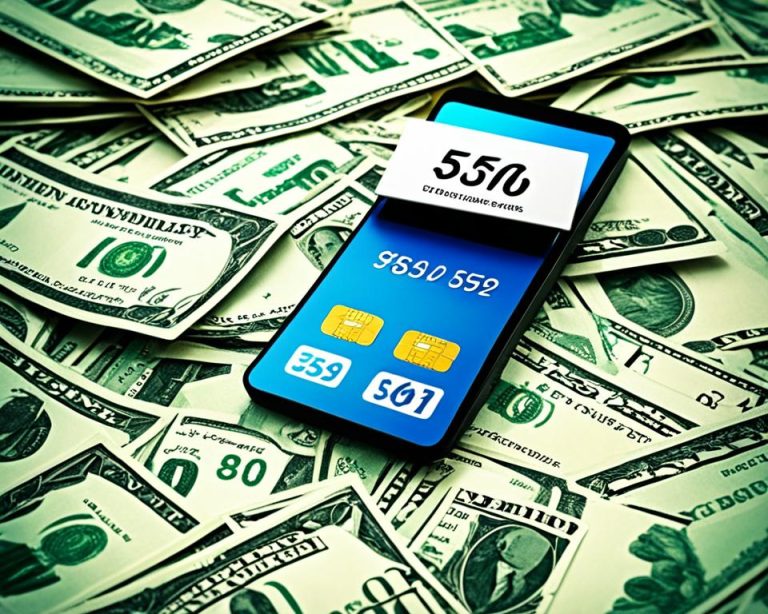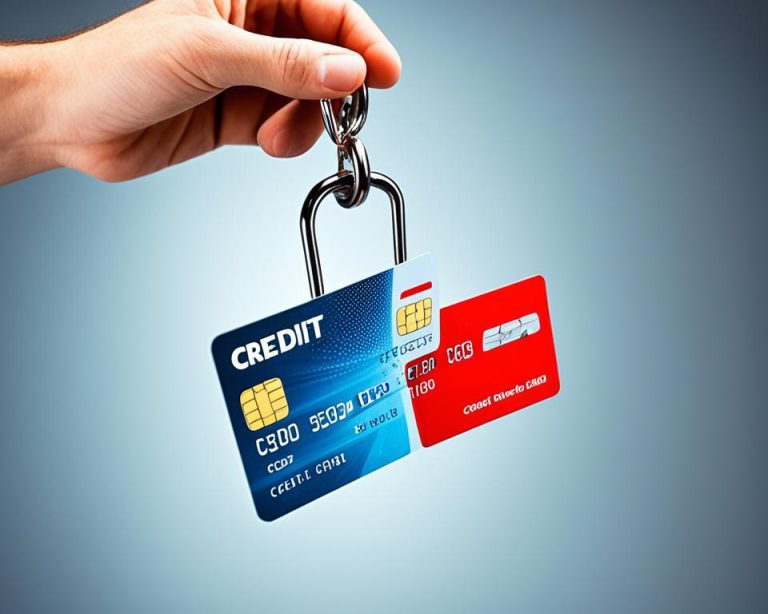Using a credit card to finance purchases is not a positive reason due to the various financial risks and pitfalls it can present. While credit cards offer certain conveniences and benefits, they also carry inherent dangers that can lead to significant financial distress if not managed properly.
One primarily is high interest rates associated with credit card debt, which is not a positive reason for using a credit card to finance purchases. When cardholders do not pay off their balance in full each month, the remaining balance accrues interest, often at rates significantly higher than other forms of credit, such as personal loans or mortgages.
Over time, this can lead to a substantial increase in the amount owed, making it more difficult for individuals to pay off their debt. Moreover, the ease of access to credit can encourage overspending, which is not a positive reason for using a credit card to finance purchases.
Credit cards can create a false sense of financial security, leading individuals to make purchases they cannot afford. This behavior can quickly spiral out of control, resulting in a growing debt burden that becomes increasingly challenging to manage.
Unlike cash transactions, where the physical act of handing over money can act as a deterrent to overspending, credit card transactions are quick and often feel less tangible, making it easier to lose track of expenses. Another significant issue is the potential impact on one’s credit score, which is not a positive reason for using a credit card to finance purchases.
While responsible use of a credit card can help build a positive credit history, misuse or failure to manage credit card debt effectively can severely damage one’s credit score. Late payments, high balances relative to credit limits, and maxed-out cards can all negatively affect a credit score.
A lower credit score can make it more difficult and expensive to obtain other forms of credit in the future, such as car loans or mortgages, and can even affect one’s ability to rent an apartment or secure certain types of employment.
Additionally, relying on credit cards to finance purchases can lead to a cycle of debt that is difficult to break, which is not a positive reason for using a credit card to finance purchases. Minimum payment requirements often make it seem manageable to carry a balance from month to month, but paying only the minimum amount can extend the debt repayment period over many years and result in paying significantly more in interest.
This long-term debt can limit one’s financial flexibility and ability to save for future needs, such as retirement, education, or emergencies. Credit cards can also come with various fees that add to the overall cost of using them.
These fees can include annual fees, late payment fees, foreign transaction fees, and cash advance fees, which is not a positive reason for using a credit card to finance purchases. Accumulating these fees can further exacerbate financial strain and make it more challenging to manage one’s finances effectively.
Moreover, there is the psychological aspect of debt that can negatively affect one’s well-being, which is not a positive reason for using a credit card to finance purchases. The stress and anxiety associated with carrying significant credit card debt can impact mental health and overall quality of life.
Constantly worrying about making payments, dealing with collection calls, and managing a tight budget can create a chronic state of stress that affects both personal and professional life. While some argue that credit cards offer rewards and benefits, such as cashback, travel points, or purchase protections, these perks should not be the primary reason for using credit cards, especially when financing purchases.
The potential financial risks often outweigh the benefits, which is not a positive reason for using a credit card to finance purchases. Rewards programs can encourage further spending, leading individuals to purchase items they do not need or cannot afford simply to earn rewards. This can contribute to the cycle of debt and negate any perceived value from the rewards earned.
In addition, the complexity of reward programs can sometimes lead to confusion and suboptimal use of the benefits. The terms and conditions associated with earning and redeeming rewards can be complicated and may require significant effort to understand fully. If not carefully managed, cardholders might not maximize the benefits or may inadvertently forfeit rewards due to expiration dates or other restrictions.
Furthermore, using credit cards to finance purchases can hinder the development of sound financial habits, which is not a positive reason for using a credit card to finance purchases. Relying on credit rather than budgeting and saving can prevent individuals from learning to live within their means and managing their finances responsibly.
This dependency on credit can create a habit of spending future income before it is earned, leading to perpetual financial instability. The convenience and ease of credit card use also increase the risk of fraud and identity theft, which is not a positive reason for using a credit card to finance purchases.
Credit card information can be stolen through various means, such as data breaches, skimming devices, or phishing scams. While many credit card companies offer fraud protection, dealing with the aftermath of fraudulent transactions can be time-consuming and stressful. In some cases, the cardholder may still be held liable for a portion of the fraudulent charges, adding to the financial burden.
Lastly, the marketing tactics used by credit card companies can be misleading, encouraging individuals to take on more debt than they can handle, which is not a positive reason for using a credit card to finance purchases. Offers of low introductory interest rates, balance transfer options, and attractive rewards can lure consumers into opening multiple credit card accounts, increasing their overall debt exposure and complicating their financial situation.
Read Also: How to Setup A Bass Pro Shop
Beyond the Benefits: Examining the Downsides of Using a Credit Card to Finance Purchases

Using a Credit card to finance purchases is widely used for its convenience, rewards, and ability to facilitate transactions without carrying cash. However, while these benefits are well-publicized, the downsides of using a credit card to finance purchases are equally significant and often less discussed.
Understanding these drawbacks is crucial for making informed financial decisions and avoiding potential pitfalls that can lead to financial distress. One of the primary downsides of using a credit card to finance purchases is the high interest rates associated with carrying a balance. Unlike other forms of credit, such as mortgages or personal loans, credit card interest rates are typically much higher.
When cardholders do not pay off their balance in full each month, the remaining balance accrues interest at these high rates. This can quickly turn a manageable debt into a significant financial burden. For instance, a credit card with an 18% interest rate can exponentially increase the amount owed if only minimum payments are made, leading to a cycle of debt that is difficult to escape.
In addition to high interest rates, credit cards can encourage overspending. The ease and convenience of using a credit card to finance purchases can create a false sense of financial security, leading individuals to make purchases they cannot afford.
Unlike cash transactions, where the physical act of handing over money can act as a deterrent to overspending, credit card transactions are quick and often feel less tangible. This can result in a disconnect between spending and financial reality, causing individuals to accumulate debt more rapidly than they realize.
The potential for debt accumulation is further exacerbated by the minimum payment requirement structure of credit cards. Credit card companies often set low minimum payment amounts, making it seem manageable to carry a balance from month to month.
However, paying only the minimum amount significantly extends the debt repayment period and increases the total amount paid due to accrued interest. This can lead to long-term financial strain, limiting an individual’s ability to save for future needs such as retirement, education, or emergencies.
Another significant downside is the impact on one’s credit score. While responsible use of a credit card to finance purchases can help build a positive credit history, misuse or failure to manage credit card debt effectively can severely damage one’s credit score. High balances relative to credit limits, late payments, and maxed-out cards can all negatively affect a credit score.
A lower credit score can make it more difficult and expensive to obtain other forms of credit in the future, such as auto loans or mortgages, and can even affect one’s ability to rent an apartment or secure certain types of employment. This underscores the importance of managing credit card debt carefully to avoid long-term negative consequences.
Credit cards also come with various fees that can add to the overall cost of using them. These fees can include annual fees, late payment fees, foreign transaction fees, and cash advance fees. Accumulating these fees can further exacerbate financial strain and make it more challenging to manage one’s finances effectively.
For instance, a single late payment can trigger a fee, increase the interest rate, and negatively impact the credit score, creating a cascading effect of financial difficulties. Moreover, the psychological burden of credit card debt cannot be overlooked. The stress and anxiety associated with carrying significant credit card debt can impact mental health and overall quality of life.
Constantly worrying about making payments, dealing with collection calls, and managing a tight budget can create a chronic state of stress that affects both personal and professional life. The psychological impact of debt can be profound and enduring, affecting relationships and overall well-being.
Furthermore, relying on credit cards to finance purchases can hinder the development of sound financial habits. Using credit instead of budgeting and saving can prevent individuals from learning to live within their means and managing their finances responsibly.
This dependency on credit can create a habit of spending future income before it is earned, leading to perpetual financial instability. In contrast, living within one’s means and saving for future purchases can promote financial stability and long-term financial health.
Another downside is the increased risk of fraud and identity theft. Credit card information can be stolen through various means, such as data breaches, skimming devices, or phishing scams. While many credit card companies offer fraud protection, dealing with the aftermath of fraudulent transactions can be time-consuming and stressful.
In some cases, the cardholder may still be held liable for a portion of the fraudulent charges, adding to the financial burden. Lastly, the marketing tactics used by credit card companies can be misleading, encouraging individuals to take on more debt than they can handle. Offers of low introductory interest rates, balance transfer options, and attractive rewards can lure consumers into opening multiple credit card accounts.
Once the introductory period ends, the standard high interest rates apply, and individuals may find themselves with more debt than they can manage. This can lead to a cascade of financial difficulties, further illustrating the downsides of using a credit card to finance purchases.
Read Also: How to Purchase an Item from a Disney Store
How the Credit Score Impacts Can Be a Drawback of Using a Credit Card

Credit cards are a ubiquitous financial tool, offering convenience, rewards, and the ability to build credit history. However, the misuse of credit cards can lead to negative impacts on one’s credit score, which can be a significant drawback.
A poor credit score can have long-lasting consequences, affecting various aspects of financial life. Here, we explore how credit score impacts can be a drawback of using a credit card to finance purchases, detailing the specific ways misuse can harm your credit standing.
1. High Credit Utilization Ratio: One of the critical factors in calculating a credit score is the credit utilization ratio, which is the amount of credit card debt relative to the credit limit. A high credit utilization ratio indicates that you are using a significant portion of your available credit, often by using a credit card to finance purchases, which can negatively impact your credit score.
For example, if you have a credit limit of $10,000 and your balance is $8,000, your credit utilization ratio is 80%. Credit scoring models typically view high utilization ratios as a sign of financial risk, suggesting that you may be over-relying on credit and potentially unable to manage your debts. Maintaining a high balance relative to your credit limit can thus lower your credit score, making it harder to obtain favorable credit terms in the future.
2. Late or Missed Payments: Payment history is the most significant factor in most credit scoring models, accounting for about 35% of your credit score. Late or missed credit card payments, often resulting from using a credit card to finance purchases, can have a substantial negative impact on your credit score.
When you miss a payment or pay late, it is reported to the credit bureaus and stays on your credit report for up to seven years. For instance, even a single late payment can drop your credit score significantly, especially if you have a good credit score to begin with.
This can lead to higher interest rates on loans and credit cards, increased insurance premiums, and even difficulty in securing rental housing or employment opportunities. Consistently making late payments can compound these issues, further damaging your credit score and financial reputation.
3. Opening Multiple Credit Card Accounts: While having multiple credit card accounts can potentially increase your total available credit and lower your credit utilization ratio, it can also negatively impact your credit score in several ways.
Each time you apply for a new credit card, the issuer performs a hard inquiry on your credit report. Multiple hard inquiries within a short period can lower your credit score, as it may indicate that you are seeking credit due to financial distress.
Moreover, opening several new accounts in a short time can reduce the average age of your credit accounts, which is another factor in your credit score. Credit scoring models tend to favor longer credit histories because they provide more information about your credit behavior over time. A shorter average account age can thus lower your credit score.
4. Maxed-Out Credit Cards: Maxing out your credit cards, or reaching the credit limit on one or more cards, can severely impact your credit score. High balances suggest that you are heavily reliant on credit, which can be a red flag to lenders. Even if you make timely payments, maxed-out credit cards can hurt your credit utilization ratio and signal financial instability.
For example, if you have a credit card with a $5,000 limit and you consistently carry a $5,000 balance, your credit utilization ratio is 100%. This level of utilization is typically viewed negatively by credit scoring models and can significantly lower your credit score. Reducing balances and keeping utilization below 30% of your credit limit is generally recommended to maintain a healthy credit score.
5. Closing Credit Card Accounts: While closing a credit card account might seem like a prudent way to manage credit and avoid future debt, it can actually harm your credit score. Closing an account reduces your overall available credit, which can increase your credit utilization ratio if you carry balances on other cards.
For instance, if you have two credit cards with a total credit limit of $10,000 and you close one with a $5,000 limit, your available credit is halved. If you have an existing balance on the remaining card, your credit utilization ratio increases, which can lower your credit score. Additionally, closing an older credit card can shorten your credit history, further impacting your score.
6. Applying for Credit Cards Too Frequently: Frequent credit card applications can result in multiple hard inquiries on your credit report. While one or two inquiries might have a minor impact, several inquiries within a short time frame can raise concerns among lenders about your creditworthiness. Each hard inquiry can slightly lower your credit score, and the cumulative effect can be significant.
For example, if you apply for three or four credit cards within a few months, each application results in a hard inquiry. These multiple inquiries can reduce your credit score and suggest to lenders that you might be in financial trouble or planning to take on excessive debt. It’s generally advisable to space out credit applications and only apply for new credit when necessary.
7. Balances on Multiple Cards: Carrying balances on multiple credit cards can complicate debt management and negatively affect your credit score. Even if you make timely payments, having balances spread across several cards can increase your overall debt load and impact your credit utilization ratio.
For instance, if you have three credit cards with a combined limit of $15,000 and balances totaling $10,000, your overall credit utilization ratio is about 67%. This high level of utilization can lower your credit score, as it indicates that you are heavily reliant on credit. Managing multiple balances also increases the risk of missing payments, further jeopardizing your credit score.
8. Balance Transfers and Debt Consolidation: While balance transfers and debt consolidation can be effective strategies for managing credit card debt, they can also negatively impact your credit score if not handled properly. Transferring a balance from one card to another often involves opening a new account, which can lower your average account age and result in a hard inquiry.
Moreover, if you do not pay off the transferred balance within the promotional period, you could end up with a higher interest rate and more debt. Consolidating debt onto a single card can also increase your credit utilization ratio on that card, negatively affecting your credit score. It’s crucial to manage these strategies carefully to avoid unintended consequences on your credit score.
Why the Hidden Costs of Using a Credit Card to Finance Purchases Matters

Credit cards are a ubiquitous financial tool, providing convenience, rewards, and the ability to finance purchases. However, beyond these apparent benefits lie hidden costs that can significantly impact an individual’s financial health. Understanding these hidden costs of using a credit card to finance purchases is crucial for making informed financial decisions and avoiding potential pitfalls.
1. High-Interest Rates: One of the most significant hidden costs of using a credit card to finance purchases is the high-interest rates. Credit cards typically come with interest rates that are much higher than those of other forms of credit, such as personal loans or mortgages.
When cardholders do not pay off their balance in full each month, the remaining balance accrues interest at these high rates. This interest can quickly accumulate, leading to a significant increase in the amount owed. For instance, a credit card with an annual percentage rate (APR) of 18% can exponentially increase debt if only minimum payments are made.
Over time, the interest can compound, making it difficult to pay down the balance and trapping individuals in a cycle of debt. This high cost of borrowing is often overlooked when consumers initially use their credit cards, but it can have a long-term impact on their financial stability.
2. Various Fees: In addition to high interest rates, using a credit card to finance purchases comes with various fees that can add to the overall cost. These fees include annual fees, late payment fees, foreign transaction fees, cash advance fees, and balance transfer fees.
Each of these fees can increase the cost of financing purchases with a credit card, often without the cardholder fully realizing the impact. For example, late payment fees can be substantial, often around $35 or more per missed payment. If a cardholder misses multiple payments, these fees can quickly add up, further exacerbating financial strain.
Similarly, cash advances come with high fees and interest rates that start accruing immediately, making them an expensive way to access cash. These fees are often hidden in the fine print of credit card agreements, but they can significantly increase the cost of using a credit card to finance purchases.
3. Potential for Overspending: Using a credit card to finance purchases can encourage overspending due to its ease and convenience. The ability to make purchases without immediate payment creates a false sense of financial security, leading individuals to buy items they cannot afford. This overspending is a hidden cost because it can lead to debt accumulation that is difficult to manage.
Unlike cash transactions, where the physical act of handing over money can act as a deterrent, credit card transactions are quick and often feel less tangible. This can result in a disconnect between spending and financial reality, causing individuals to accumulate debt more rapidly than they realize. The hidden cost of overspending can lead to long-term financial difficulties, as individuals struggle to pay off the debt and face high-interest charges.
4. Impact on Credit Scores: Mismanaging credit card debt can severely impact an individual’s credit score, which is another hidden cost of using a credit card to finance purchases. High balances relative to credit limits, late payments, and maxed-out cards can negatively affect credit scores.
A lower credit score can make it more difficult and expensive to obtain other forms of credit in the future, such as auto loans or mortgages, and can even impact one’s ability to rent an apartment or secure certain types of employment.
For instance, a high credit utilization ratio (the amount of credit card debt relative to the credit limit) is viewed negatively by credit scoring models. Maintaining high balances can lower a credit score, making it harder to secure favorable credit terms.
Additionally, late payments can stay on a credit report for up to seven years, significantly impacting one’s creditworthiness. These long-term consequences highlight the hidden costs of misusing a credit card to finance purchases.
5. Psychological Burdens: The psychological burden of credit card debt is another hidden cost that is often overlooked. The stress and anxiety associated with carrying significant credit card debt can negatively impact mental health and overall quality of life.
Constantly worrying about making payments, dealing with collection calls, and managing a tight budget can create chronic stress that affects both personal and professional life. For example, the pressure to keep up with monthly payments and the fear of falling further into debt can lead to feelings of hopelessness and depression.
This chronic stress can spill over into other areas of life, affecting relationships, job performance, and overall well-being. The psychological impact of debt can be profound and enduring, highlighting another reason why the hidden costs of using a credit card to finance purchases matter.
6. Hindrance to Sound Financial Habits: Using a credit card to finance purchases can hinder the development of sound financial habits. Relying on credit instead of budgeting and saving prevents individuals from learning to live within their means and manage their finances responsibly.
This dependency on credit can create a habit of spending future income before it is earned, leading to perpetual financial instability. For example, individuals who use credit cards to finance purchases may be less likely to save for emergencies or future needs.
This lack of savings can lead to financial insecurity and a reliance on credit to cover unexpected expenses. Over time, the hidden cost of not developing sound financial habits can result in ongoing financial challenges and an inability to achieve long-term financial goals.
In conclusion, while credit cards offer numerous benefits, including convenience, rewards, and the ability to build credit, the hidden costs of using a credit card to finance purchases are substantial and can have long-lasting effects on financial health.
High interest rates, various fees, the potential for overspending, negative impacts on credit scores, psychological burdens, and the hindrance to developing sound financial habits all contribute to the overall cost of using credit cards to finance purchases.
Understanding these hidden costs of using a credit card to finance purchases is essential for making informed financial decisions and avoiding the potential pitfalls of credit card debt. By managing credit cards wisely and being aware of the hidden costs, individuals can protect their financial well-being and ensure long-term financial stability.
Read Also: How to Ace an Interview






